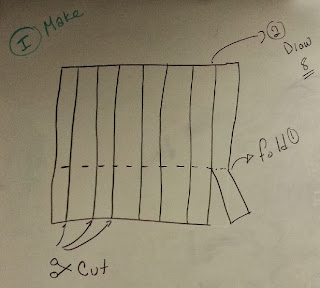The AP data is out for 2013. Some great increased nationwide. AP Computer Science went from 26,103 to 31,117 total exams given, a 19% increase. This was the highest increase out of all of the subject areas. But keep in mind AP Calculus had 282,814 exams last year, so we have a ways to go.
Virginia had 1655 AP Computer Science exams with a mean score of 3.12. Last year we had 1430 tests with an average of 2.98. Over the past 5 years there has been an 81% increase in the number of APCS exams given. This year was also the highest mean score for the past five years, so some great progress has been made.
According to the state report card 67,805 students took AP exams in 2013 (
data here). So teh APCS exam accounted for about 2.5% of the overall number of AP exams given.
Which all sounds great, until you start to look a little deeper.
When you look, in 2013 the number of black students taking the exam was 3. Our max in the past 5 years was 6. Six. That year my personal AP class was 1/3 of those African American students.
Demographically Virginia is about 20% black. With roughly 375,502 students enrolled in Virginia public high schools last year (
2013 enrollment data) that means we have roughly 75,000 African American students at the high school level, and 3 took the AP Computer Science exam.
If we randomly assigned students electives we would have fared better.
And you can look at any of the subgroups and see the same trend. For instance for the 2013 exam 25% of the 8 Hispanic students to take the exam sat in my classroom.
Now I'm a big believer at starting with data and getting to the stories underneath. The bottom line in Virginia is access.
For instance, Richmond city schools, a predominantly African American school district has no computer science classes. None, zippo, zilch.
This is not about diversity for diversity's sake. This means these kids do not have access to jobs. According to the Bureau of Labor and Statistics Virginia is 4th in the nation for jobs in this area, but 12th population wise. This means we have the highest concentration of jobs nationwide in computer science. Washington DC and Virginia rank #1 and 2 for salary nationwide - so these great jobs cannot be filled by huge numbers of our children. A child sitting in Kindergarten in Richmond City Schools today may never even know this field exists, literally blocks from the front door of their school
And at a deeper level, computer science is the tool we use to solve human problems. Being the person holding the tool means you get to decide what is a problem and what gets a solution. These numbers mean these communities do not get to participate.
So to change the data, we have to change the stories. Every high school in the state needs computer science classes that are rigorous and relevant for its students. That means trained teachers and a working curriculum. Kids and parents need to know that this is an option for them, that they can create using this tool. They need to be able to tell their stories as we build the future.
A few things to put Virginia in Context:
- Virginia has not adopted common core
- Our K-12 end of course tests are called the SOLs (Standards of Learning). Yes, really
- AP Computer Science counts as a 4th math credit here, but only if you are going for an advanced diploma, and you have passed Alg II. we're working on it
- We are a Commonwealth, which means our school systems are driven at the local level, not by top down policy and curriculum from the state.
- Out legislature meets either 4 or 6 weeks a year, that's it.





















